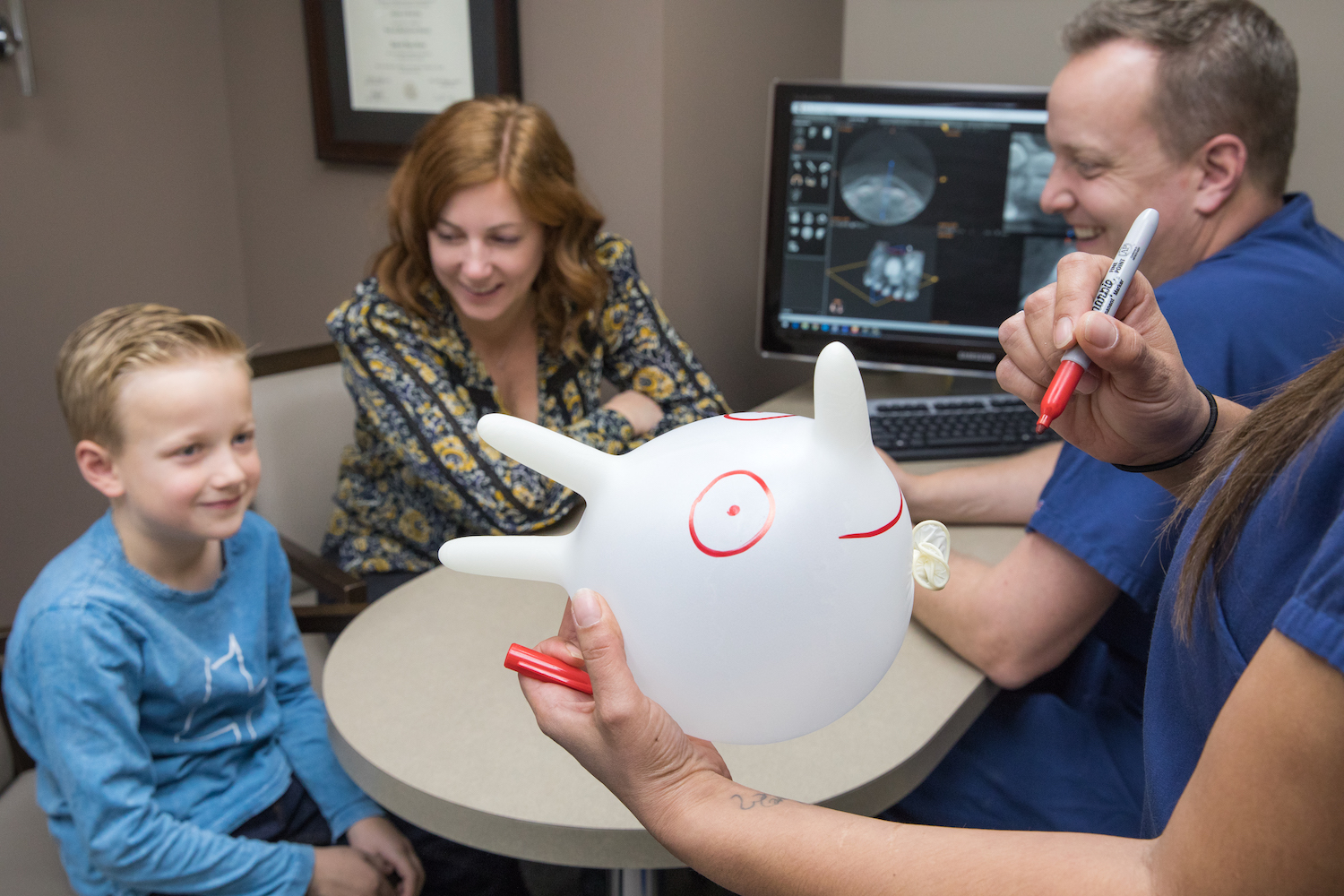Does oral surgery hurt?
Here, your comfort is our priority.
Have questions?
*Required Field
Less fear, more comfort
A promise from Mission Oral Surgery team
If the thought of visiting an oral surgeon makes you anxious, you could be having dentalphobia.
Perhaps you’re scared of what’s to come after a wisdom tooth removal or you have never been to an oral surgeon before. Maybe it’s the fear of the unknown. Whatever your reason, the right dental team and mindset can make your visit more comfortable.
At Mission Oral & Maxillofacial Surgery, our dedicated team of oral surgeons in Calgary understand that surgery isn’t fun.
At your visits, we aim to give you:
- A relaxed and stress-free experience
- A full understanding of your conditions and treatments option
- A clear walkthrough of your treatment process
- The best care possible.
Here, you will find comfort when you need it most.
Trusted by:




Ask us how we ensure your treatment is a safe and comfortable one.
Does oral surgery hurt?
Today’s oral surgery tools, techniques, and medications have made procedures less painful and more comfortable for patients. At Mission Oral Surgery, we offer effective dental sedation to numb your tissues, block pain, and put you to sleep during your surgery. You’ll experience little to no pain during an oral surgery.
Anesthetics at Mission Oral Surgery
Our procedures are performed under local anesthesia, laughing gas (nitrous oxide/oxygen analgesia), intravenous anesthesia sedation (IV sedation), or a combination of these medications.
Our oral surgeons and team are also well skilled in administering anesthesia and managing any complications that may arise.
read more...
- Local anesthesia numbs the area of the mouth to be treated, blocking the sensation of pain during the procedure.
- Laughing gas or nitrous oxide/oxygen analgesia is breathed through a mask placed over your nose. This helps feel relaxed and less nervous.
- IV sedation puts you in a sleep-like state, helping make the surgery as painless as possible. The best part is, you won’t remember a thing.
If you’ve been delaying necessary treatments, sedation can alleviate your apprehension. And whichever method of anesthesia you require, trust your oral surgeon and our highly-trained anesthesia team can provide you with a safe and comfortable experience.

How to prepare for IV Sedation
- You may not have anything to eat or drink (including water) past midnight the night before surgery.
- No smoking for at least 12 hours before surgery. Ideally, cut down or stop smoking as soon as possible prior to the day of surgery.
read more...
- A responsible adult must accompany the patient to the office, remain in the office during the procedure, and drive the patient home.
- The patient should not drive a vehicle or operate any machinery for 24 hours following anesthesia.
- Please wear loose fitting clothing with sleeves which can be rolled up past the elbow, and low-heeled shoes.
- Contact lenses, jewelry, and dentures must be removed at the time of surgery.
- Do not wear lipstick, excessive makeup, or nail polish on the day of surgery.
- If you have an illness such as a cold, sore throat, stomach or upset bowels, please notify the office.
If you take routine oral medications, please check with Drs. Edwards and Goos prior to your surgical date for instructions.
Ways to overcome dentalphobia
To truly overcome dental anxiety, you first need to change the way you see oral surgeons in general. Keep in mind that under that white coat is someone who cares not just about your teeth, but also your comfort and safety.
It also helps to talk it over. Quite often, anxiety is caused by the fear of the unknown. Ask your physician about the procedure and what it will involve. If you’re scared of needles and sharp objects, let them know so they can find ways to make you more comfortable.
Lastly, establish a non-verbal cue with your surgeon before your oral surgery. This way, you’ll have a way to let them know when you’re in pain or uncomfortable.
Book your appointment now
*Required Field